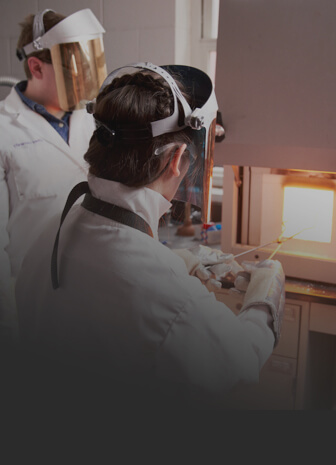Tunnel kiln is a continuous sintering kiln. Its main fuel is natural gas or liquefied petroleum gas. Its maximum working temperature is 1350 degrees. It is mainly used for sintering ceramics, such as ceramic tableware, ceramic sanitary ware, powder ceramics, building bricks and tiles, refractory bricks (silicon bricks, corundum products, etc.), refractory castables, roasted metal ores, lithium battery positive electrode materials, ceramic-based composite materials and functional ceramics.

Ceramic industry
– Daily ceramics: used to fire tableware, tea sets, etc., to provide a stable high-temperature environment for the blank, so that it undergoes physical and chemical changes and obtains good density, strength and gloss.
– Architectural ceramics: In the production of tiles and sanitary ware, the temperature curves at different stages can be accurately controlled to ensure that the product size accuracy, flatness and surface color texture meet the standards.
– Art ceramics: High-temperature firing of exquisite ornaments to ensure their artistic quality and performance.
Refractory material production
– Refractory bricks: Firing various refractory bricks, such as silica bricks, corundum products, etc., provides high temperatures of up to thousands of degrees to form a stable crystal structure and good high-temperature resistance.
– Refractory castables: meet the temperature and atmosphere requirements during the firing process, and improve the refractoriness, corrosion resistance and mechanical strength of the product.
Building materials industry
– Brick and tile production: effectively improve the strength and durability of bricks and tiles. Compared with traditional intermittent kilns, the continuous production mode saves time and cost.
– Other building materials: can be used to burn some brick and tile products and other building ceramic products made of coal gangue, fly ash, shale, inferior coal, etc.
Metallurgical industry
– Sintering metal ore: used to sinter metal ore, improve ore grade, and promote metal extraction, such as pretreatment of iron ore in steel production.
– Heat treatment of metal materials: annealing, quenching and other heat treatments are performed on some metal materials to improve the organizational structure and performance of the materials.
New material roasting
– Lithium battery positive electrode materials: achieve precise control of material structure and improve product consistency.
– Ceramic-based composite materials: solve the problem of material oxidation through atmosphere control technology.
– Functional ceramics: multi-temperature zone design meets the material phase change requirements and improves product performance indicators by more than 20%.
|
Item |
Name |
Parameter |
|
1 |
Model |
DM-TK68 |
|
2 |
Usage |
Sintering Sanitary Ware |
|
3 |
Annual Output |
≥250,000 Pieces/Year |
|
4 |
The Effective Length of Kiln |
68 Meters |
|
5 |
Product Loading Height |
900mm |
|
6 |
Firing Cycle |
About 16-20 hours |
|
7 |
Cart Speed |
20-25 Minutes/Car |
|
8 |
Kiln Car Size |
1400*2000mm(Length*Width) |
|
9 |
Total Number of Kiln Cars |
70 Sets |
|
10 |
Product Sintering Temperature |
About ≤1250℃ |
|
11 |
Product Energy Consumption |
1000 Kcal/Kg |
|
12 |
Sintering Atmosphere |
Oxidation |
|
13 |
Fuel Type |
Natural Gas or Liquefied Gas |
|
14 |
Number of Burners |
68 Sets |
|
15 |
Control Loop |
11 Groups |
|
16 |
Control Method |
PID Intelligent Instrument + Industrial Computer |
|
17 |
Work Method of Kiln Car |
Automatic |
|
18 |
Fan Control |
Inverter |
|
19 |
Temperature Difference |
±5℃(Sintering Zone) |
|
20 |
Total Installed Power |
100Kw |
Can Be Customized